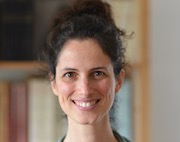In the same section
-
Share this page
ERC research project IDED - Paula Gobbi
IDED is a Starting Grant ERC project (2020) led by Paula Gobbi - ECARES, Solvay Brussels School of Economics and Management

Economists study inheritance and demographics in isolation, overlooking the feedback effects between the two. This is surprising given that other social scientists have typically related inheritance schemes to family structures. The general objective of this proposal is to understand the implications of these interconnections for the process of economic development.
Led by Paula Gobbi - ECARES, Solvay Brussels School of Economics and Management -, the project IDED will create new databases for European countries between the seventeenth and the nineteenth centuries, and for Sub-Saharan African countries during the past century until today. These databases will enable researchers to establish facts relating inheritance schemes, family structures and demographic variables. Second, it will propose structural models of inheritance, family structures, marriage and fertility in order to rationalize these facts. These models will assess the importance of the relationship between inheritance and demographics when studying the effect of inheritance on economic outcomes.
The databases and structural models will provide answers to specific applied research questions: (i) The Demographic Transition: Was the French Revolution responsible for the demographic transition? How did the abolition of primogeniture affect the elites’ demographic transition? (ii) The European Marriage Pattern: how did its characteristics - late marriages and high life-long celibacy - vary across inheritance systems? (iii) Sub-Saharan Africa’s demographic transitions: How does land scarcity affect the relationship between inheritance practices, family structures, and demographics?
crédit photo DdlC
 This project has received funding from the European Research Council (ERC)
This project has received funding from the European Research Council (ERC)under the European Union’s Horizon 2020 research and innovation programme (grant
 agreement No GA 947654).
agreement No GA 947654).Dates
Created on September 3, 2020
